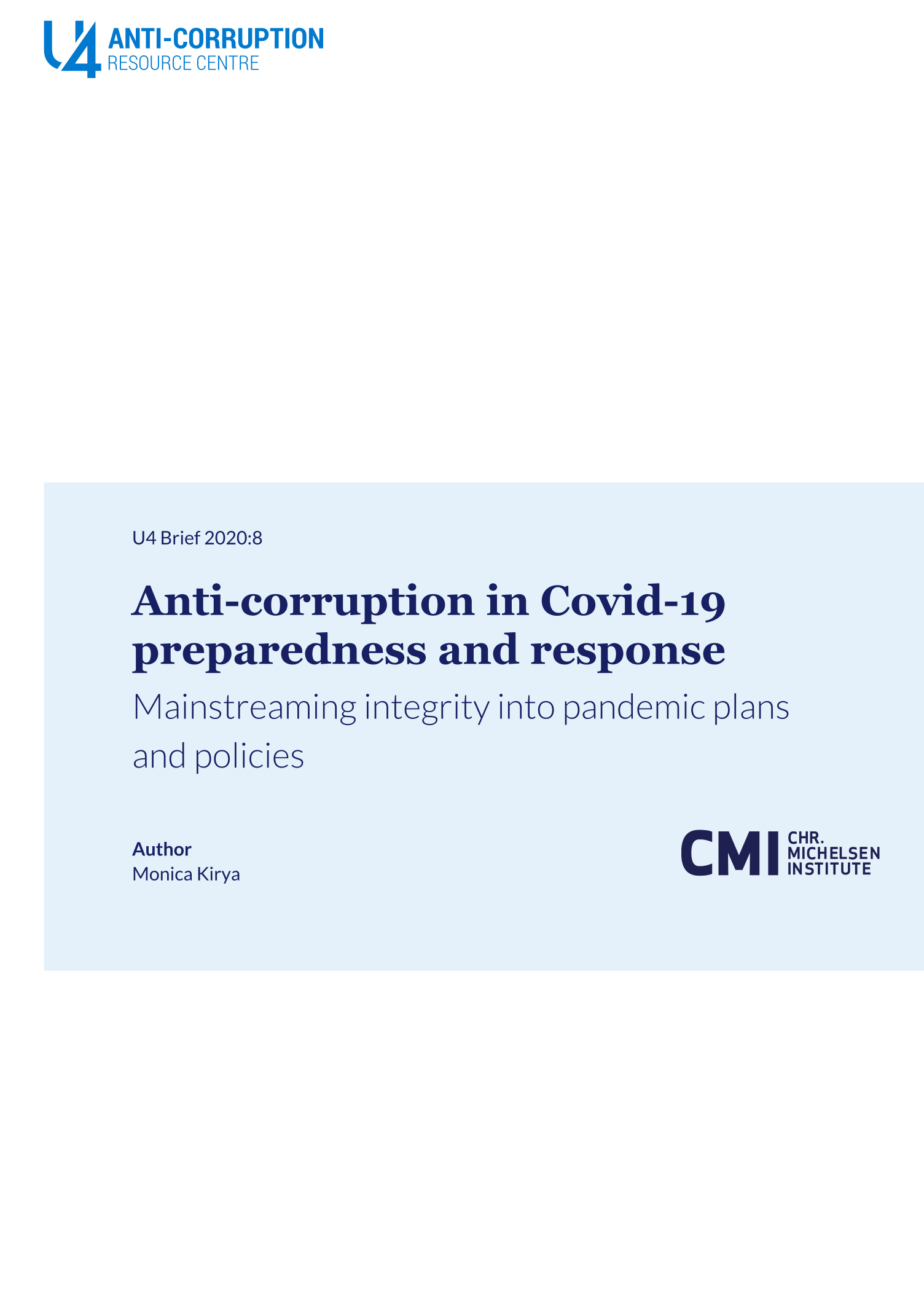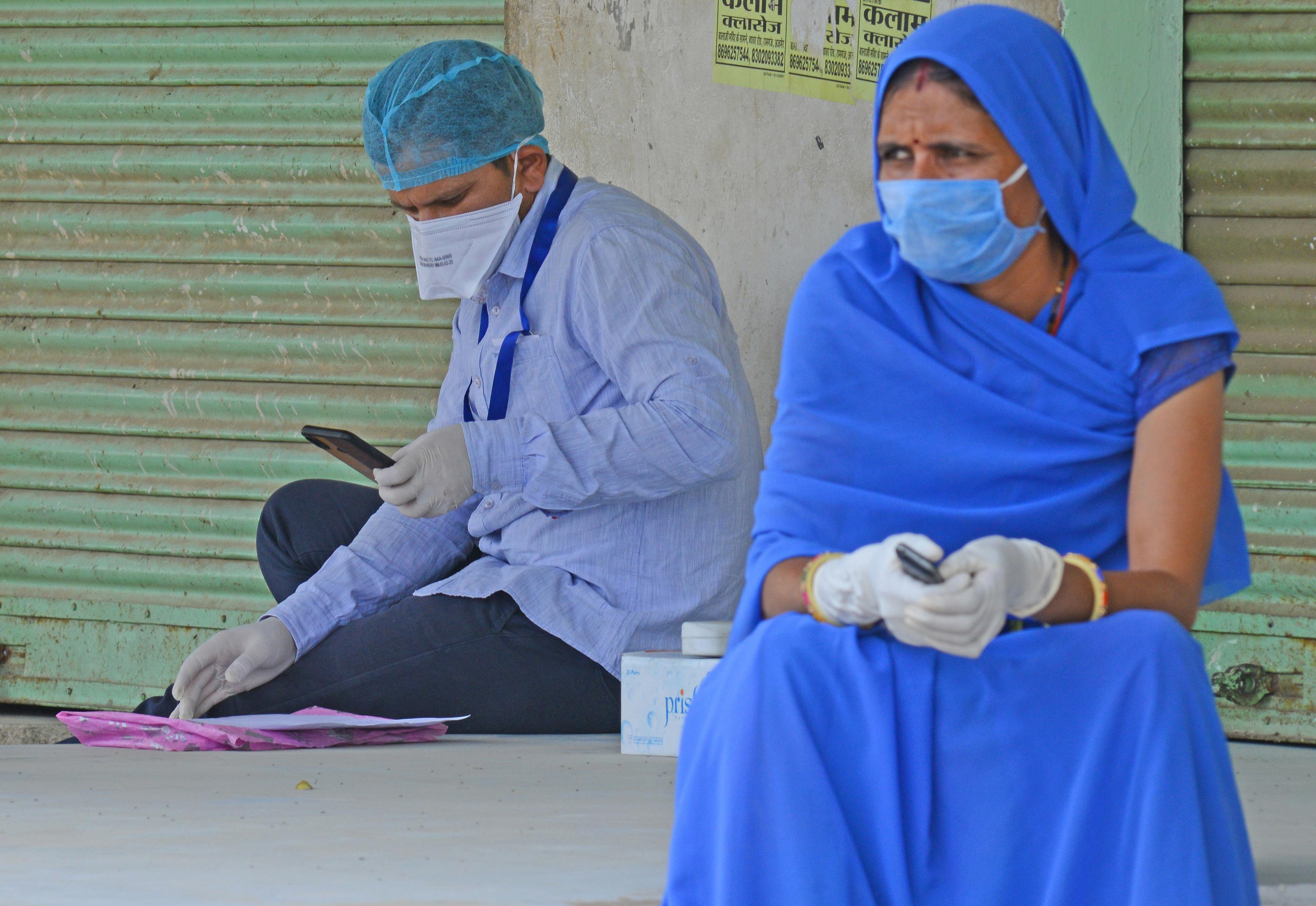Main points
- Most governments were not ready for the Covid-19 pandemic.
- Response plans do not give enough consideration to governance and problems of corruption.
- Corruption has obstructed responses to pandemics in the past.
- Plans and policies can balance competing interests by using the principles of equity, efficiency, liberty, reciprocity and solidarity.
- Response plans should also build in the overarching considerations of preventing corruption and promoting integrity, transparency, accountability and participation.
- The pandemic actually provides an opportunity for countries to strengthen anti-corruption and integrity, and so improve overall governance.
- Measures to minimise corruption in a pandemic include involving anti-corruption agencies in the national taskforce; identifying and assessing corruption risks as part of the situation analysis; and taking action to promote transparency, participation, accountability and integrity.
- After the pandemic, the response evaluation should look at how corruption affected the outcome, as well as whether integrity was upheld or undermined.



